About this course
Taught by professionals and academics using industry-standard facilities so you gain the hands-on experience needed in your day-to-day work as a sports journalist.
- Accredited by the National Council for the Training of Journalists (NCTJ)
- Practical training in research, writing and filming as well as multi-media sports content production
- Taught by journalists and sports journalists with many years' experience and links to regional/national newspapers, Sky Sports News, radio stations, magazines and independent platforms
- Opportunities for industry placements with media and sports organisations, including Premier League football clubs
- Taught in the £38million Redmonds Building with industry-standard facilities including newsrooms, studios, editing booths
- Opportunity to sit professional National Council for the Training of Journalists exams and acquire full NCTJ Diploma
- Publish work on the Mersey Sports Live website
This is a highly vocational Masters programme, which provides practical training in multi-media sports reporting and production. It will arm you with key practical skills such as filming, editing, shorthand, CMS, analytics among others. LJMU's BA Sports Journalism has been a popular and well regarded undergraduate programme for a number of years. Merseyside is the host of some of the world's best sporting events, from the Open Golf Championship, to Premier League football, and is therefore the ideal place to study the discipline of Sports Journalism.
Course modules
Discover the building blocks of your programme
Further guidance on modules
Modules are designated core or optional in accordance with professional body requirements, as applicable, and LJMU’s Academic Framework Regulations. Whilst you are required to study core modules, optional modules provide you with an element of choice. Their availability may vary and will be subject to meeting minimum student numbers.
Where changes to modules are necessary these will be communicated as appropriate.
Core modules
Journalism in Context
20 credits
20 credits
This module provides a critical understanding of journalism theory and concepts.
Subject areas will include the impact of the digital revolution, patterns of media ownership, the implications of the demise of local journalism and the emergence of the democratic deficit.
It will also incorporate principles of communication practices in the digital age, for example PR, embedded journalism, churnalism and clickbait.
You will explore and critically analyse journalism regulation and media freedom and will be able to examine key ethical issues in practical journalism including representation of disadvantaged group and reporting trauma.
Journalism in Context will provide a challenging insight into journalism practice and will equip you with a theoretical knowledge base which you can then develop further into a dissertation or personal study project in your final semester.
This module complements Media Law, Regulations and Court Reporting by enabling you to reflect on the theory of legal, regulatory and ethical frameworks within the context of practical journalism issues.
Media Law, Regulation and Court Reporting
20 credits
20 credits
This module covers basic knowledge of the English legal system, including of court processes the hierarchy of the courts; contempt of court and related matters; the rules of the court protecting anonymity in the reporting of children and sexual offences; reporting the courts – court procedure and reporting restrictions; open justice and challenging court orders; defamation and related matters; copyright; privacy and confidentiality; regulation – the role of the Editors’ Code and the Broadcast Code; ethics in newsgathering – including reporting children and vulnerable people; protecting journalists’ sources and the right to report.
The module will prepare you for the NCTJ professional diploma examinations in Essential Media Law and Court Reporting.
Research Skills for Journalists
10 credits
10 credits
This module teaches skills required for Masters dissertation or Masters practical project, including providing an understanding of research methods and the production of research papers and dissertations. It should develop the students' research skills and allow them to plan and develop the early part of the dissertation or practical project.
Essential Sports Journalism and Professional Practice
20 credits
20 credits
This module will help you to understand what is ‘newsworthy’ and what makes a story, develop your content ‘ideas’ from source to completion, and learn to develop and nurture contacts and sources. You will employ effective interview techniques to obtain information and quotes (including use of Shorthand) and will use appropriate media and platforms for disseminating content. It will develop your journalistic writing style to enable you to construct readable and engaging content as well as employ SEO skills for headlines, intros, captions, social media teasers and more. You will develop technical CMS and mobile journalism skills required in today’s industry so you can produce/edit video, audio and image-led content.
This module will help prepare you to sit the NCTJ Essential Journalism examination.
Multi-Platform Sports Journalism
20 credits
20 credits
You will work as part of a team creating content to deadline in live multi-platform newsdays.
You will undertake key newsroom leadership roles during newsdays, and react to breaking sports news quickly to inform digital audience. You will report “live” sports on-scene using Facebook Live + other tools, and run multiple social media platforms to publish, share, engage, source and verify. During news days you will enhance your CMS skills in uploading, editing, publishing digital content, and develop creative and feature news/sports content writing styles such as profiles, listicles, opinions, longer form issue features.
You will also employ ‘live blog’ skills in the field, in sports arena, and create video packages for online, including pieces to camera, sequence, voiceovers and captions. Throughout the module you will use your ethical and legal knowledge in ‘live’ content production and publication.
In live newsdays, you will operate as a team and produce content for digital and broadcast platforms to deadlines. You will operate in different roles to develop transferable skills as well as practical journalistic techniques. This module will prepare you to sit NCTJ Videojournalism online examination.
Sports Portfolio and Professional Practice
20 credits
20 credits
This module helps students construct professional portfolios and showreels of work for transition to industry and prepare them to undertake relevant work placement/experience to enhance industry practice. It will help them develop a professional digital “footprint” and their social media brands and encourage them to engage in career research activities focusing on employment opportunities. Tutorials will focus on development of career CVs and job/internship interview skills. It will also enhance shorthand skills to reach industry gold standard of 100wpm.
Optional Modules
Public Affairs for Journalists
10 credits
10 credits
This module equips students with a good working knowledge of the operation of local and central government. It prepares students with the skills required to report the affairs of government in a compelling way. Finally, the module develop student’s ability to critically evaluate the impact of political institutions on journalists and citizens.
Journalism Dissertation
60 credits
60 credits
This module will assist you to produce a written dissertation that researches a key issue relating to News or Sports Journalism and which demonstrates mastery in its analysis and evaluation. It will cover research aims and objectives, research questions and hypothesis; literature review and underpinning theories; paradigms: positivism and interpretivism; research methodologies: quantitative and qualitative approaches; research methods; data collection and analysis; validity and reliability in research; ethical issues and writing up academic research.
Major Journalism Practical Project
60 credits
60 credits
The major research project is an extended piece of research giving the student an opportunity to study in depth a topic or issue of their choosing, with clear boundaries achievable, and to produce a professional piece of independent journalism in a suitable format as negotiated with the supervisor.
You will be expected to integrate newly acquired production skills and knowledge together with advanced research skills at Masters level.
All knowledge and skills gained on the course should be applied to produce a highly professional piece of written and/or broadcast journalism, which is adaptable for a targeted outlet and therefore highly applicable and relevant in displaying an ability to multi-skill and produce and present across different media platforms. Examples include a series of online/multi-media features, a long-form radio documentary, a TV documentary, a series of print features for newspapers or magazines.
Broadcast Journalism
10 credits
10 credits
This module enhances students' TV/radio sports production and presenting skills, boosting their confidence on and off-camera and improving their employability in sports broadcasting. It covers advanced technical and editorial techniques, camera setups, studio reporting, voice coaching, and live commentary. Students also learn to adapt to various broadcasting scenarios, incorporate graphics and stats, and produce sports bulletins.
Your Learning Experience
An insight into teaching on your course
Study hours
Full-time students can expect 16-18 contact hours per week, usually over three full days (subject to timetabling). The remainder of the week will be spent with a combination of self-directed study and practical work.
Teaching methods
You will be taught in a combination of seminars, workshops and tutorials. Each seminar/workshop is designed for up to 20 students, with some bespoke workshops for smaller groups and regular one-on-one tutorials.
Applied learning
You will have access to the Liverpool Screen School's industry-standard facilities, helping you secure the hands-on experience you will need in your day-to-day work as a journalist. These facilities include edit suites, newsrooms, radio sound studios and a TV studio. Our strong links with local newspapers, television companies and radio stations mean that there will be opportunities for invaluable work experience during the course.
And you will develop your own enviable portfolio of live published sport content using our own digital platform
A work placement is core to your programme as part of the Sports Portfolio module in Semester 2. You will embark on a minimum two-week placement with an employer during which you will practise the essential skills honed on the course. Tutors will guide you to secure placements at local, regional and national journalism outlets and sporting clubs and organisations with media and comms teams'
This highly vocational Masters programme provides practical training in multi-media sports reporting and production. It will arm you with key practical skills such as filming, editing, shorthand, CMS, analytics among others.
It will further your knowledge of essential areas such as media law and ethics. You will also develop skills in analysis and interpretation, initiative and research, which are useful in any career.
Industry speakers include people such as:
- Liam Thorp - Politics Editor, Liverpool Echo (Reach Plc)
- Vidar Hardeng - Law and Ethics diversity consultant - ITV News
- Jenny Kirkham - News reporter, Liverpool Echo
- Graham Beecroft - Talksport, BBC Merseyside, football correspondent
- Connor Dunn - Sports reporter, Liverpool Echo
- John Pickford - Editor-in-Chief, Bauer Radio News
- Michael McCann - Freelance sports broadcaster (Cricket World Cup)
- Mark Nicholls - War/conflict reporter - freelance regional and national journalist
- Anna Kessel - Women's Sports Editor, Telegraph Media
- Steve Sutcliffe - Online reporter, BBC Sport
- Emma Jones - BBC 5 Live sports journalist + LUTV presenter
- Alice McKeegan - Head of Football, Manchester Evening News
- Abigail Edge - Google News Lab - teaching fellow
How learning is monitored on your programme
To cater for the wide-ranging content of our courses and the varied learning preferences of our students, we offer a range of assessment methods on each programme.
Where you will study
What you can expect from your School
The School is based in the Redmonds Building, in the heart of the bustling Mount Pleasant Campus and Liverpools growing Knowledge Quarter. Redmonds is shared by two Schools within the Faculty of Arts, Professional and Social Studies Liverpool Screen School and the School of Law - and Liverpool Business School, making for a rich blend of student learning experiences. The building is home to high quality lecture theatres and seminar rooms, social spaces, and a cafe. It is only a short walk from LJMUs Aldham Robarts Library, which contains all the resources you will require for your studies.
Course tutors
Our staff are committed to the highest standards of teaching and learning

Pete Leydon
Programme leader
The boom in popularity of sport around the globe means there has never been a greater demand for skilled sports journalists who can produce accurate, fast and professional content across all media platforms. Taught by a team of dedicated, experienced and skilful professionals, this course will equip students with the skills and knowledge they need to forge a successful career in sports journalism.
The boom in popularity of sport around the globe means there has never been a greater demand for skilled sports journalists who can produce accurate, fast and professional content across all media platforms. Taught by a team of dedicated, experienced and skilful professionals, this course will equip students with the skills and knowledge they need to forge a successful career in sports journalism.
We have strong links and industry endorsements from Sky News/Sky Sports News, BBC Sport, Reach plc (Echo, MEN etc), and we have an excellent range of industry speakers who will come in and speak to students about the role of journalism in sports.
-
 Programme Leader
Programme Leader
Career paths
Further your career prospects
LJMU has an excellent employability record with 96% (HESA 2018) of our postgraduates in work or further study six months after graduation. Our applied learning techniques and strong industry connections ensure our students are fully prepared for the workplace on graduation and understand how to apply their knowledge in a real world context.
You will be given an in-depth understanding of sports journalism as a profession and we strive to highlight to you the full range of career options available to you when you leave.
Your career and academic development are at the heart of our course design. As well as career opportunities in sports journalism, the course will open doors into areas such as PR (public relations), information management, press office/comms roles in sports clubs and organisations, sports production companies, marketing.
In addition, you may wish to continue to PhD study, for a career in academia. As well as gaining these highly valuable research skills, you will be equipped with transferable skills that will be highly valued in related industries such as marketing, PR, new media, broadcasting and writing.
Helen Mayo is Assistant Media Manager at Everton Football Club. Speaking about her role at Everton, Helen said: "I'm responsible for proactively arranging interviews for men's and women's teams to enhance the reputation of individuals and the club. We also arrange player appearances, deal with incoming media enquiries and requests, ensure the club complies with media rules set out by the Premier League and maintain strong relationships with external media partners, such as Sky Sports. Every day is different with new challenges. I'm proud to work for Everton." Helen reflected on her studies at LJMU: "It's not just about the academic skills of writing, shorthand and understanding media law, but the skills you need in a workplace such as working as a team, learning from others, being confident enough to share your opinions and so on. Never forget that you can learn something from everyone you meet. Enjoy talking to people and be inquisitive."
Professional accreditation/links
All students will have the opportunity to sit professional National Council for the Training of Journalists exams and acquire full NCTJ Diploma during the lifetime of their studies.
By studying on this NCTJ accredited course, you are more appealing to employers looking for multi-skilled recruits who know the fundamentals of journalism and can operate to professional standards.
As an accredited programme, applicants to this course can also apply for additional support via the Journalism Diversity Fund. Bursaries from the JDF can help cover costs of NCTJ course fees and/or living expenses. Find out about the Journalism Diversity Fund
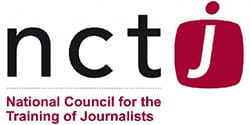
Fees and funding
Tuition Fees:
There are many ways to fund postgraduate study for home and international students
Fees
The fees quoted at the top of this page cover registration, tuition, supervision, assessment and examinations as well as:
- library membership with access to printed, multimedia and digital resources
- access to programme-appropriate software
- library and student IT support
- free on-campus wifi via eduroam
Additional costs
Although not all of the following are compulsory/relevant, you should keep in mind the costs of:
- accommodation and living expenditure
- books (should you wish to have your own copies)
- printing, photocopying and stationery
- PC/laptop (should you prefer to purchase your own for independent study and online learning activities)
- mobile phone/tablet (to access online services)
- field trips (travel and activity costs)
- placements (travel expenses and living costs)
- student visas (international students only)
- study abroad opportunities (travel costs, accommodation, visas and immunisations)
- academic conferences (travel costs)
- professional-body membership
- graduation (gown hire etc)
Funding
There are many ways to fund postgraduate study for home and international students. From loans to International Scholarships and subject-specific funding, you’ll find all of the information you need on our specialist postgraduate funding pages.
Please be aware that the UK’s departure from the EU may affect your tuition fees. Learn more about your fee status and which tuition fees are relevant to you.
Entry requirements
You will need:
Qualification requirements
Undergraduate degree
- a minimum 2.2 honours degree in a relevant subject area (e.g. English Language, English Literature, Politics, History, Law, Sociology, Sports Studies, Sports Science, Sport Performance) is preferable, although degrees in non-relevant subjects will also be considered
- non-standard applications from those without a degree will also be considered
Additional requirements
-
Interview required
- All short-listed applicants will be invited to attend an informal interview (via Skype/telephone/Zoom in not possible in person and for international students)
International requirements
Other international requirements
- International students should have recognised qualifications equivalent to a British Bachelors degree preferably in a relevant subject (e.g. Journalism, Media Studies, English Language, English Literature, Politics, History, Law, Sociology, Sports Studies, Sports Science, Sport Performance) with a pass of at least 2:2 plus an IELTS score of 7.5 (minimum 7 in each component) or an equivalent English language test accepted by UKVI
How to apply
Securing your place at LJMU
To apply for this programme, you are required to complete an LJMU online application. You will need to provide details of previous qualifications and a personal statement outlining why you wish to study this programme.
All applicants will undergo an informal interview (Skype or telephone if located abroad or cannot attend in person), including writing aptitude, general knowledge and use of English to ensure they are suitable for MA study and the rigours of an accredited programme.
Your student experience
There's so much more to university than just studying for a degree.
Talk to our students
Connect with a current LJMU student through Unibuddy for insights and advice on university life, courses, and more.
See what our students are saying
At LJMU we want you to know you’re making the right choice by studying with us. You can see what our students are saying about their experience with us through their reviews on the following websites:
Related Links
News and views
Browse through the latest stories and updates from the University and beyond
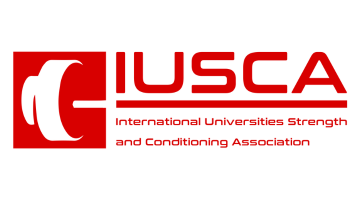

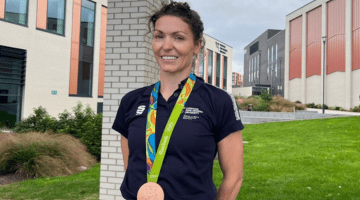
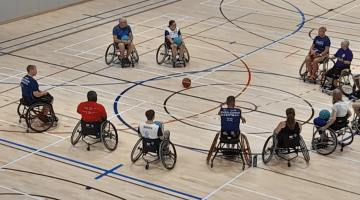
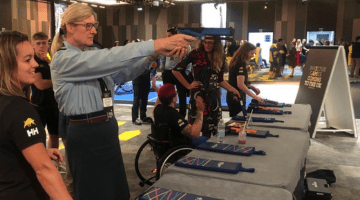

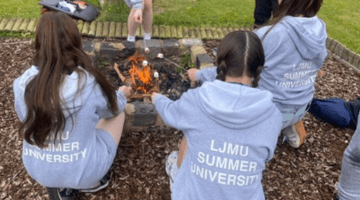
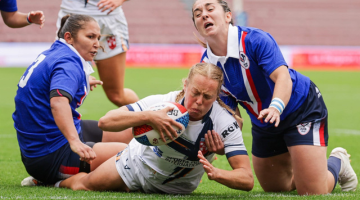


The University reserves the right to withdraw or make alterations to a course and facilities if necessary; this may be because such changes are deemed to be beneficial to students, are minor in nature and unlikely to impact negatively upon students or become necessary due to circumstances beyond the control of the University. Where this does happen, the University operates a policy of consultation, advice and support to all enrolled students affected by the proposed change to their course or module.








